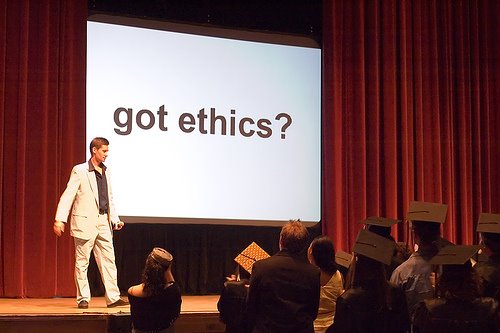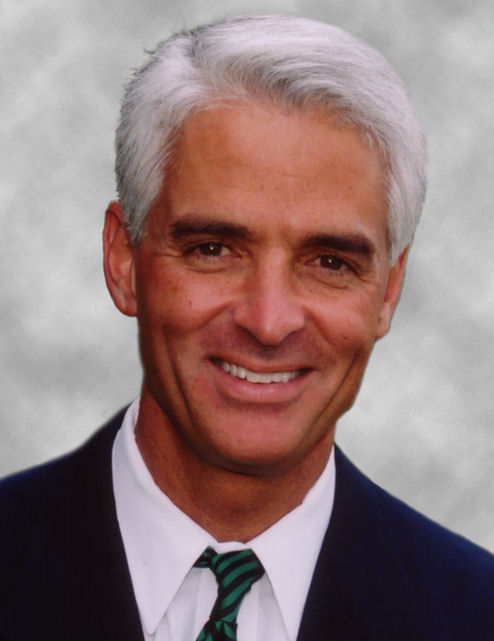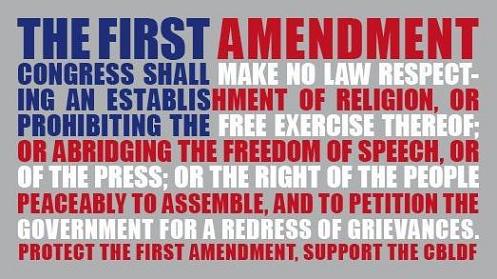 (This is cross-published at Above the Law)
(This is cross-published at Above the Law)
For the new ATL readers, let me introduce myself here in my first column. OK, screw that, I know you don’t really give a damn about me, so let’s jump to the meat and potatoes…
You all know that Dewey & LeBoeuf, filing for bankruptcy liquidation today, is the largest law firm to ever go bust. And that means a ton of people are now out of work, either scrambling to hitch their wagons to new firms or looking to start their own practices.
Because having your own firm is, to many, the Holy Grail of a law practice. Sure, some like the consistent fat paycheck, but the ranks of lawyers are filled with Type-A personalities who fantasize about practicing law the way they want to do it, not the way some other Type-A knucklehead has been telling them to do it.
There are only about a gazillion things to think about in starting your own shop: office space, support staff, technology and money to keep you going, to name a few. But today’s topic will be self-promotion and social media. And I don’t mean this in a good way, as in here’s how to go out and be famous on Twitter. No, no, a thousand times no. Instead I’d like to warn you about them, and help you save your soul.
You’re welcome. Pull up a chair, and let’s review some of the more dreadful attorney marketing over the years. We’ll start in the toilet.
And when I say start in the toilet, I am perhaps, exaggerating a bit, because what I really mean is over a urinal. Now I know that no one from BigLaw would ever stoop low enough to advertise over a urinal, but you should know that marketing opportunities come in all shapes and sizes and that someone, somewhere might try to sell you something that doesn’t quite pass the smell test.
Selling is what marketers do, and dreams of a steady flow of clients is what many lawyers want to hear. That is always the salesman’s pitch, figuring out what the mark wants to hear. (“Would you like to have more cases?”) But I don’t suggest you take the ghoulish pitch from the funeral home website. Or that you advertise in a jail.
I won’t belabor the point of lousy marketing strategies, because I think you get the picture. If you’re going out on your own — and letting everyone know you are out on your own — you may start fielding inquiries not only from the commercial end of the pool where you once swam, but also questions from friends, family and neighbors that may focus on the consumer end of the law. That means criminal, personal injury, matrimonial, residential real estate, etc.
Some of you will dabble, not wanting to turn away business and curious as to how you might expand your practice. And some of you might actually like it, as your clients are likely to be real people instead of corporations. In addition to getting paid, you might get the warm, fuzzy feeling of actually helping a fellow human. But because these are people that don’t usually use legal services, it is also the domain of the mass advertiser.
So, for my new ATL readers, this is the thing to remember above all else: Marketing is part of our ethics codes. So if you outsource your marketing you outsource your ethics. It isn’t complicated; the marketer is your agent that is speaking for you. When the marketer calls and emails, you ask yourself: Is this the type of person I want to hand my law license to?
You may think that the company is reputable. But that is only because you really haven’t been watching the way some of us outside the BigLaw cocoon have been watching. Instead of giving examples of how the piddling marketing companies screw up (urinals, funeral homes, jails) — perhaps you figure you’ll just be safe and hire the biggest and best? — let’s look at the Goliaths of the industry to see how well they have done.
First in the dock is Martindale Hubbell. One day it seems, some comment spam turned up on my blog. From them. That’s right, the great revered king of all kings in the legal directory business, was using black hat techniques to drum up business. By basically coming over to my place to stick a billboard for itself on my lawn. How did that happen? Because they weren’t actually doing the work, but had simply outsourced it to others (who may in turn have outsourced it yet again). So you should assume that no matter who you hire to market for you, it will end up being done by some kid in Bangalore, India who knows less than nothing about the practice of law and our codes of professional responsibility.
Next in the dock is FindLaw. What was their faux-pas? Creating crap. This company decided to create fax-blogs that did little more than repeat local news stories of accidents and then end with a links to the people that pay them. They were hoping that the people in the accidents would Google themselves and find the story and then click on the links to the lawyers that had paid FindLaw. At one point, I actually found them using the name of a dead child in the subject heading in order to lure in the family. Ask yourself: Are these the types of people that you want to hand your ethics over to?
So this is the essence of what happens: The lawyer outsources marketing (and reputation) to a non-lawyer marketing company, which in turn hires or outsources your marketing (and reputation) to yet other people.
Don’t say you weren’t warned. Welcome to the world of attorney marketing. Please drive carefully.


